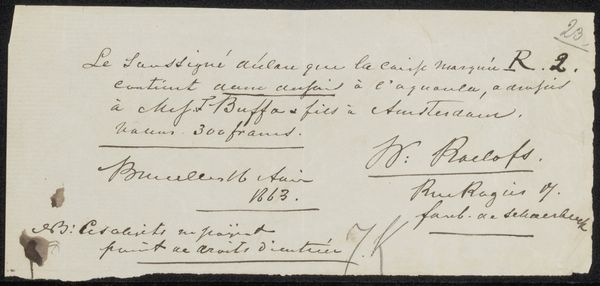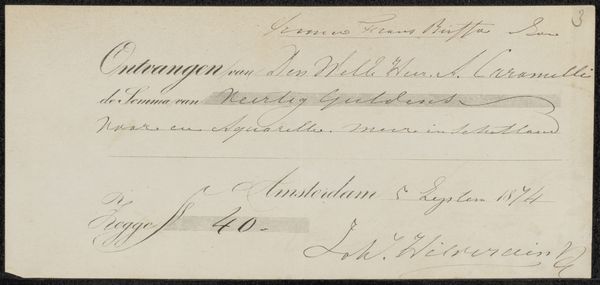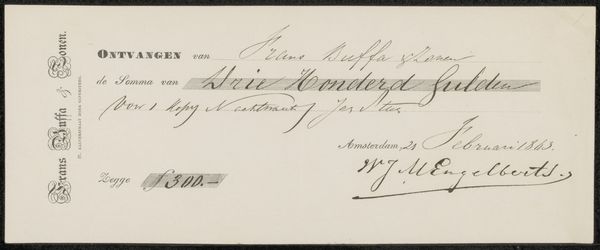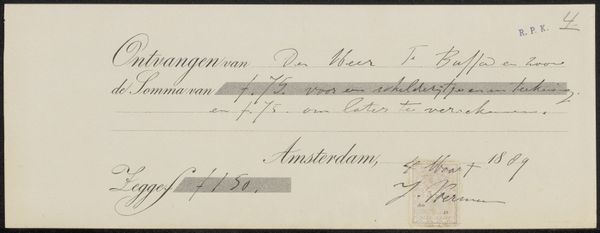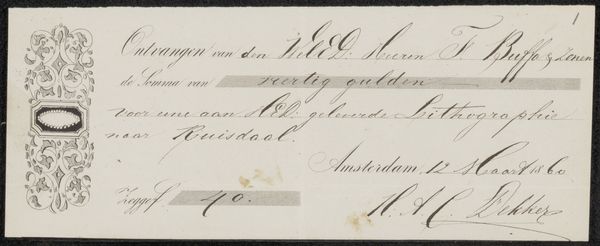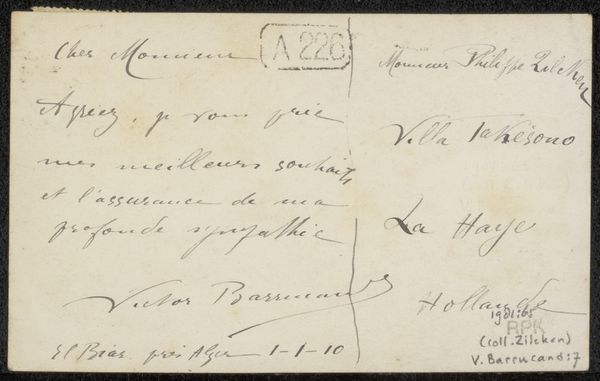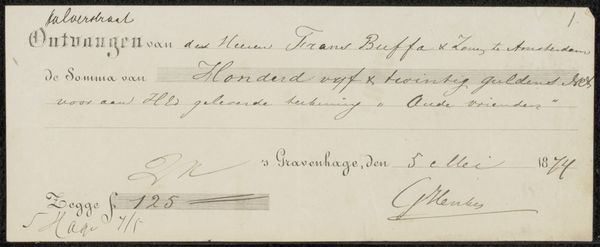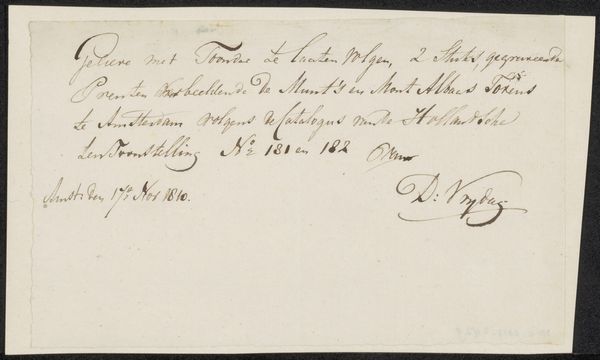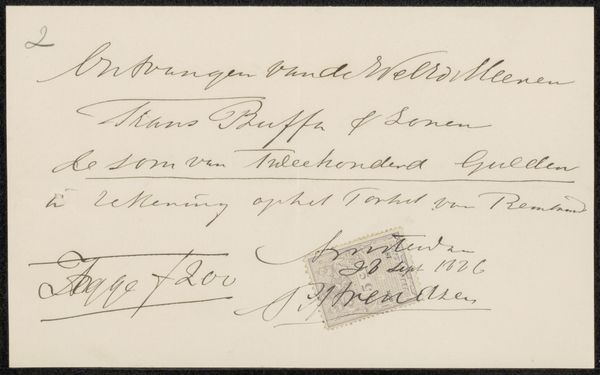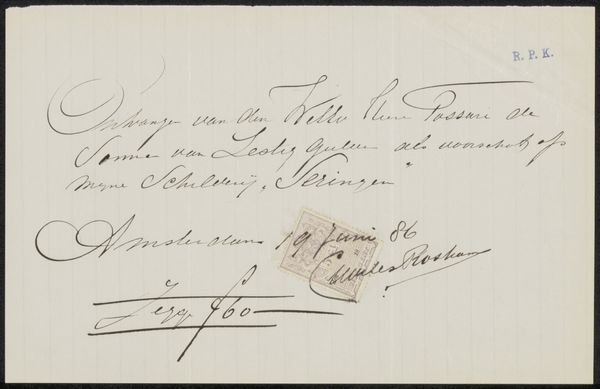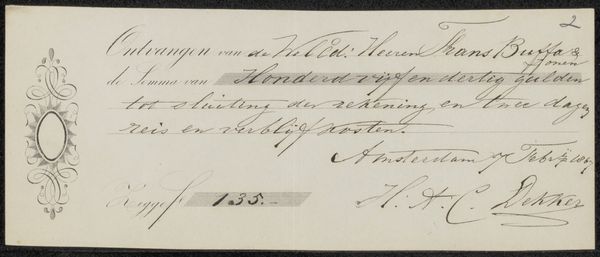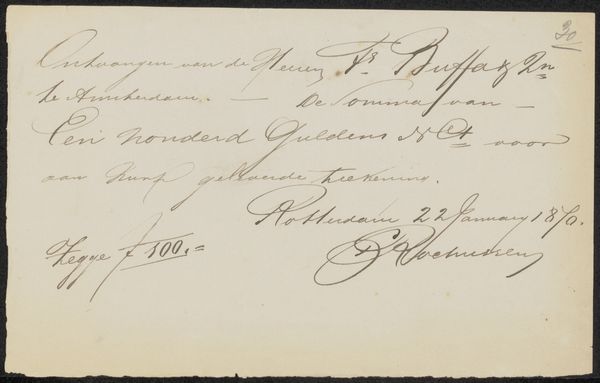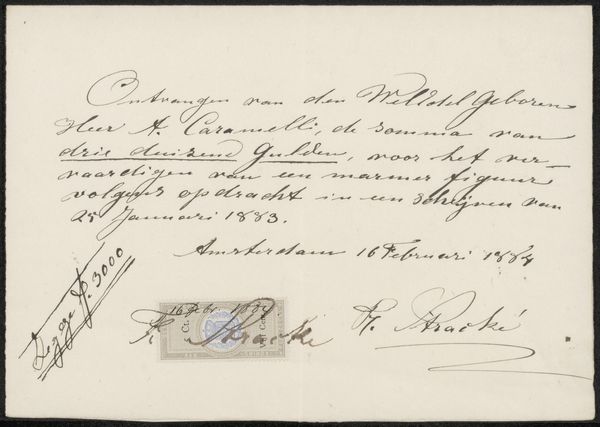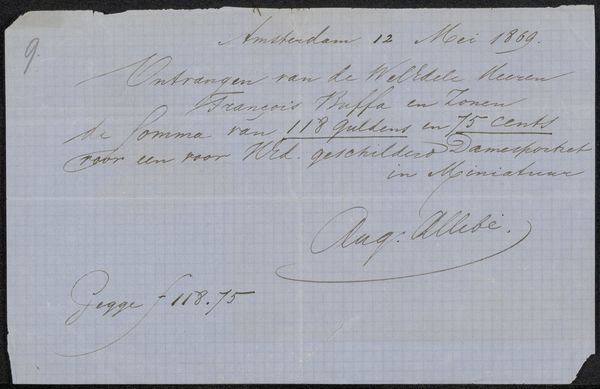
drawing, graphic-art, paper, ink
drawing
graphic-art
paper
ink
geometric
calligraphy
Copyright: Rijks Museum: Open Domain
Editor: Here we have "Kwitantie voor Marinus van der Maarel," a receipt for Marinus van der Maarel, created between 1880 and 1887, attributed to Frans Buffa en Zonen. It’s a drawing in ink on paper, showcasing rather beautiful calligraphy and what seems like a decorative frame on the left. How should we understand this piece, considering it's, well, a receipt? Curator: I see this receipt as an artifact deeply embedded in the material conditions of art production and exchange in the late 19th century. We should consider it not merely as a financial document but as evidence of the social relationships and economic structures that supported artistic creation. Editor: Could you elaborate? What do you mean by 'material conditions' in this case? Curator: Think about it. The receipt documents a transaction: money exchanged for an "aquarel," a watercolor. This tells us something about the artist, Marinus van der Maarel's income, and his patronage system. The beautiful calligraphy also underscores the value placed on aesthetics even in the most mundane economic transactions, reflecting a culture of skilled craftsmanship. Frans Buffa en Zonen acted here as middleman of cultural capital. Editor: So, the paper, ink, and calligraphy represent more than just a business exchange; they're clues to how art functioned as a commodity within society. Curator: Precisely. It highlights how art was not only produced but also consumed and distributed, enmeshed within networks of commerce and social standing. Editor: This receipt encourages me to view artistic practice with greater nuance. Curator: Indeed. This reevaluation demonstrates how material culture informs broader systems of value and cultural exchange, disrupting the boundary separating commerce and high art.
Comments
No comments
Be the first to comment and join the conversation on the ultimate creative platform.
